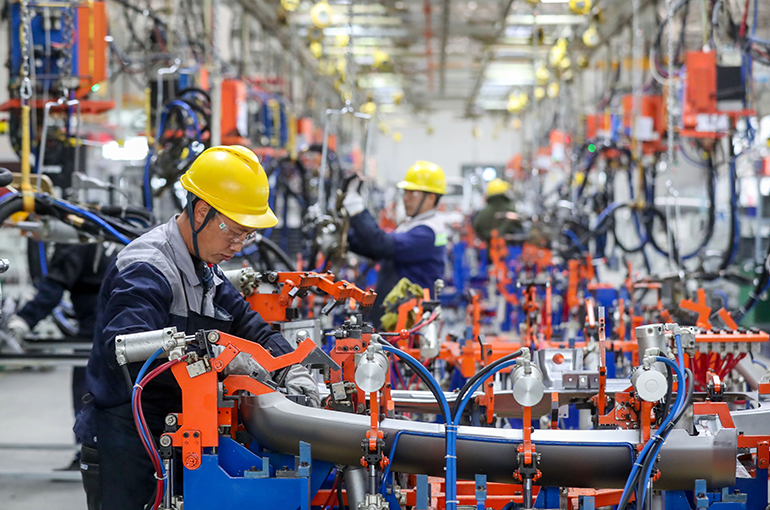 China’s Politburo Meeting Signals More Proactive Policy Boost
China’s Politburo Meeting Signals More Proactive Policy Boost(Yicai) April 25 -- China’s top decision-makers emphasized the need to continuously enhance the policy toolkit for stabilizing employment and the economy during a meeting held today.
The Political Bureau of the Communist Party of China Central Committee held a meeting today to analyze and study the current economic situation and economic work, according to Xinhua News Agency.
Xi Jinping, general secretary of the CPC Central Committee, presided over the meeting.
It was noted at the meeting that the country has seen its economy improve this year, with public confidence continuously boosted and solid progress made in high-quality development. However, the foundation for the country's sustained economic recovery needs to be further consolidated, and the country faces increasing impact from external shocks, per the report.
The meeting urged preparing for worst-case scenarios with sufficient planning, and taking concrete steps to do a good job in economic work, Xinhua added.
The gathering highlighted the need to accelerate the implementation of effective macro policies, making full use of a more proactive fiscal policy and moderately loose monetary policy. It also called for the expedited issuance and utilization of local governments' special-purpose bonds and ultra-long-term special bonds to support regional development.
Expert Advice
Financial professionals interviewed by Yicai provided concrete suggestions for expanding national prosperity.
Luo Zhiheng, chief economist at Yuekai Securities, suggested that China should actively expand domestic demand to counter the impact of tariff hikes imposed by the Donald Trump administration.
In the short term, China could consider increasing the fiscal budget as needed, cutting the reserve requirement ratio and interest rates in a timely manner, and exploring the introduction of a centralized fund to stabilize the real estate market, according to Luo.
Specifically, China could raise its fiscal budget to ensure necessary expenditures while maintaining a deficit rate of 4 percent. In terms of monetary policy, it is crucial to effectively utilize both aggregate and structural policy tools, promptly reducing RRR and interest rates to boost consumer spending and corporate investment, Luo added.
The Politburo meeting also stressed the need to increase the income levels of low- and middle-income groups, develop more services, and enhance the role of consumption in driving economic growth. It called for the removal of restrictive measures in consumer-oriented fields and the establishment of loans for service consumption and elderly care.
Wang Yiming, vice chairman of the China Center for International Economic Exchanges, stated that expanding domestic demand should focus on boosting consumption. Wang emphasized the importance of optimizing the structure of fiscal expenditures and increasing public service spending to promote consumption growth.
The current policy focus should shift toward service consumption. The nation could relax access restrictions in sectors such as high-end medical care, leisure and vacation, and elderly care services to meet the diverse needs of middle- and high-income groups, Wang added.
The Politburo meeting also discussed the need for multiple measures to support struggling enterprises. For businesses significantly affected by tariff hikes, the government could increase the proportion of unemployment insurance fund refunds to stabilize the labor market.
Lu Ting, chief China economist at Nomura Holdings, suggested that supportive policies could be introduced for exporters. Based on historical experience, measures such as loan extensions or even interest-free loans could be effective in supporting export-oriented businesses.
Bai Wenxi, vice chairman of the China Enterprise Capital Union, proposed that the government could support foreign trade enterprises through fiscal tax incentives, financial support, and consumption voucher subsidies.
Bai also suggested increasing fiscal subsidies for companies transitioning from exports to domestic sales, such as establishing special support funds to help businesses explore domestic markets and build brands. Additionally, tax incentives should be granted to qualified enterprises to alleviate their financial burdens.
Editor: Emmi Laine